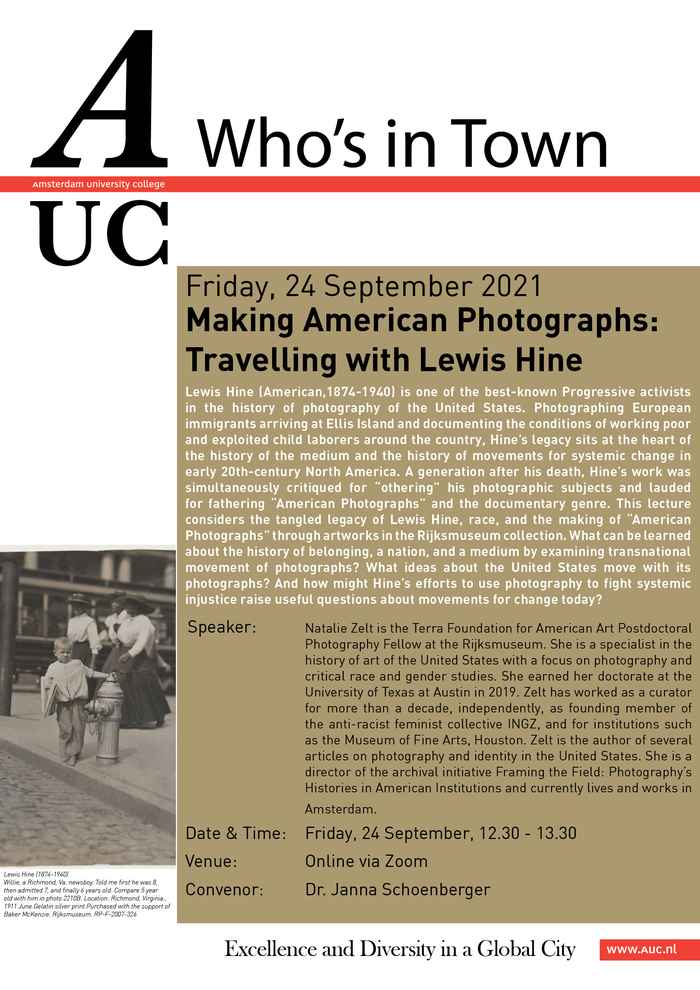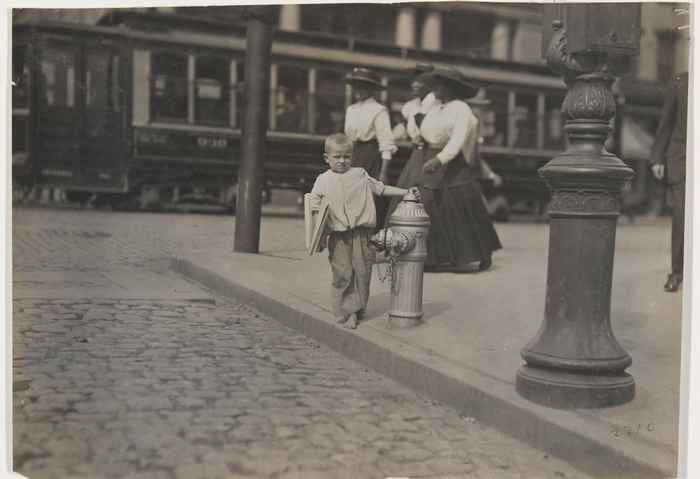WiT: Natalie Zelt "Making American Photographs: Travelling with Lewis Hine"
Part of the Who's in Town lecture series
- Date
- 24 September 2021
- Time
- 12:30 -13:30
Abstract
Lewis Hine (American,1874-1940) is one of the best-known Progressive activists in the history of photography of the United States. Photographing European immigrants arriving at Ellis Island and documenting the conditions of working poor and exploited child labourers around the country, Hine’s legacy sits at the heart of the history of the medium and the history of movements for systemic change in early 20th-century North America. A generation after his death, Hine’s work was simultaneously critiqued for “othering” his photographic subjects and lauded for fathering “American Photographs” and the documentary genre. This lecture considers the tangled legacy of Lewis Hine, race, and the making of “American Photographs” through artworks in the Rijksmuseum collection. What can be learned about the history of belonging, a nation, and a medium by examining transnational movement of photographs? What ideas about the United States move with its photographs? And how might Hine’s efforts to use photography to fight systemic injustice raise useful questions about movements for change today.
Speaker
Natalie Zelt is the Terra Foundation for American Art Postdoctoral Photography Fellow at the Rijksmuseum. She is a specialist in the history of art of the United States with a focus on photography and critical race and gender studies. She earned her doctorate at the University of Texas at Austin in 2019. Zelt has worked as a curator for more than a decade, independently, as founding member of the anti-racist feminist collective INGZ, and for institutions such as the Museum of Fine Arts, Houston. Zelt is the author of several articles on photography and identity in the United States. She is a director of the archival initiative Framing the Field: Photography’s Histories in American Institutions and currently lives and works in Amsterdam.
Convenor
Dr. Jana Schoenberger
Access the lecture
- Zoom link: https://uva-live.zoom.us/j/87640774114

